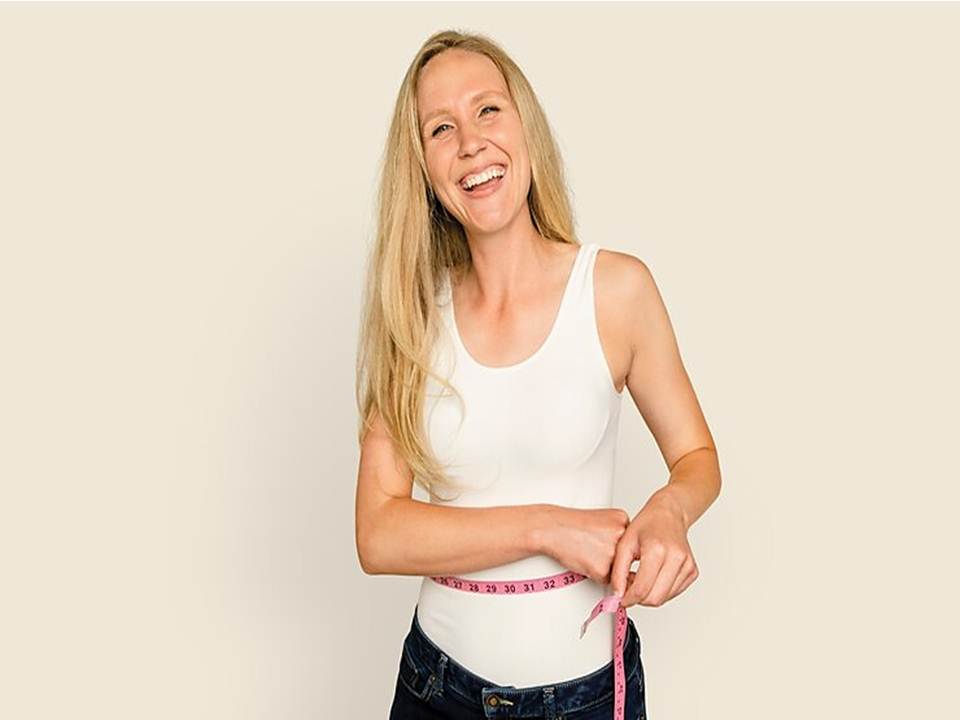As women enter their forties with grace, their quest for health and happiness takes on new forms. Being aware of your weight isn’t just a matter of style at this important point in your life; it’s an important part of a complete health plan. When a woman over 40 wants to lose weight, she has to deal with the unique challenges and chances that come with this time of life.
The goal of this piece is to give women in their forties a complete look at the many aspects of weight loss. From changes in metabolism to changes in hormones, every part of this journey of change shapes the story. Our discussion goes deep into the science behind weight loss, revealing the subtleties that make the method unique for women making the amazing transition into their forties.
The road to lose weight for women over 40 is more than just a number on the scale. It’s a path to better health, longevity, and resilience. We can change how we think about health, beauty, and self-care, realizing that being healthy is a lifelong goal that changes with each year. Come with us as we talk about health-conscious choices, personalized plans, and the many benefits that come with trying to reach a healthier weight for women who are entering this exciting and powerful time in their lives.
Weight loss for women over 40
 For women over 40, losing weight needs to be carefully planned and customized to take into account the unique challenges and chances that come with this age. To reach and keep a healthy weight, it’s important to use a long-term plan that takes into account changes in the body’s metabolism, muscle mass, and hormonal balance. For women over 40 who want to lose weight, here are some good tips:
For women over 40, losing weight needs to be carefully planned and customized to take into account the unique challenges and chances that come with this age. To reach and keep a healthy weight, it’s important to use a long-term plan that takes into account changes in the body’s metabolism, muscle mass, and hormonal balance. For women over 40 who want to lose weight, here are some good tips:
Body Fat and Muscle Mass
Keep in mind that as you get older, your metabolism tends to slow down. Through regular strength training, you should try to keep or gain lean muscle mass. Muscle tissue is metabolically active, which can help your resting metabolic rate be higher.
Well-balanced food
A healthy, well-balanced food should be your top priority. In your meals, eat a range of fruits, vegetables, whole grains, lean proteins, and healthy fats.
For personalized nutrition advice, you might want to talk to a registered dietitian.
Manage Portion Sizes
Watch your portion amounts to make sure you don’t eat too much. Pay attention to your body’s signals for when it’s hungry or full, and use smaller plates to help you control your portions.
Staying hydrated
Drink plenty of water throughout the day to stay refreshed. People who are thirsty sometimes think they are hungry.
Regular working out
 As part of your routine, do both aerobic exercises (like walking, jogging, or cycling) and strength training. Try to do at least 150 minutes of moderate-intensity aerobic exercise each week, and on at least two days, do something to strengthen your muscles.
As part of your routine, do both aerobic exercises (like walking, jogging, or cycling) and strength training. Try to do at least 150 minutes of moderate-intensity aerobic exercise each week, and on at least two days, do something to strengthen your muscles.
Training in intervals
You might want to add High-Intensity Interval Training (HIIT) to your workouts. This type of exercise involves short bursts of intense activity followed by rest periods. It may help you burn calories.
Stick to a routine
Set up a regular schedule for eating and working out. Being regular can help keep your body in check and make it easier to stick to healthy habits.
Get Good Sleep
Make it a priority to get 7-9 hours of good sleep every night. Hormones that control hunger and fullness can be changed by not getting enough sleep, which could make you gain weight.
How to Deal with Stress
Do things that help you relax, like yoga, meditation, or deep breathing. Stress that lasts for a long time can make you gain weight, especially around your stomach.
Regular check-ups with a doctor
Set up regular check-ups with doctors and nurses to keep an eye on your overall health. Talk to your doctor about any worries or problems you are having with weight loss.
For social support
Join a group of people who can help you, like friends, family, or online communities. Having people to help you can motivate and encourage you.
Set Goals That Are Doable
Set weight loss goals that you can actually reach. Your goal should be to lose weight slowly and steadily, about 1-2 pounds per week.
Have a party for non-scale victories
Celebrate and recognize accomplishments that go beyond the scale, like having more energy, a better mood, or better health.
Don’t forget that losing weight takes time, and it’s more important to focus on your health and well-being than the number on the scale. Talking to health professionals, like a registered dietitian or fitness expert, can give you personalized advice and make sure that your weight loss journey is safe and effective, based on your specific needs and health conditions.
Best tips for Weight loss for women over 40
 Women over 40 can lose weight by making healthy changes to the way they live. Here are some useful tips for this group of people:
Women over 40 can lose weight by making healthy changes to the way they live. Here are some useful tips for this group of people:
Well-balanced food
A healthy diet full of fruits, veggies, whole grains, lean proteins, and healthy fats should be your top priority.
Limit your portions to avoid eating too much, and watch out for things that are high in calories.
Workouts for strength
To build and keep muscle mass, do strength training exercises on a daily basis. This may help speed up your metabolism and change the way your body looks generally.
Heart-Healthy Exercise
 Athletic activities like jogging, riding, swimming, or walking quickly should be done at least 150 minutes a week. This helps your heart stay healthy and burn fat.
Athletic activities like jogging, riding, swimming, or walking quickly should be done at least 150 minutes a week. This helps your heart stay healthy and burn fat.
For HIIT workouts
High-Intensity Interval Training (HIIT) is a good way to burn calories quickly. Short bursts of hard exercise followed by short breaks can help you lose weight.
Eat with awareness
Pay attention to your body’s signals when you’re hungry or full to practice mindful eating. Don’t do anything else while you’re eating, and enjoy every bite.
Staying hydrated
Drink a lot of water throughout the day to stay refreshed. The body can sometimes mistake thirst for hunger.
Cut down on processed foods
Cut down on prepared and sugary foods that you eat. Choose whole, nutrient-dense foods to improve your health as a whole.
Getting Enough Protein
Eating foods that are high in protein can help you keep your muscles and feel full.
Set goals To sleep
Aim to get between 7 and 9 hours of good sleep every night. Not getting enough sleep can throw off your hormones and make it harder to control your weight.
How to Deal with Stress
Do things that help you relax, like yoga, meditation, or deep breathing. Long-term worry can make you gain weight.
Regular check-ups with a doctor
Set up regular check-ups with doctors and nurses to keep an eye on your general health. Talk about any worries you have about your weight and make sure your plan to lose weight fits your health needs.
Stick to a routine
Set up a regular schedule for eating and working out. Being regular can help keep your body in check and make it easier to stick to healthy habits.
For social support
Join a group of people who can help you, like friends, family, or an online community. Having people to help you can motivate and encourage you.
Set Goals That Are Doable
Set weight loss goals that you can actually reach. Aim for slow growth and focus on making changes to your lifestyle that will last.
Have a party for non-scale victories
Celebrate and recognize successes that go beyond the scale, like having more energy, a better mood, or better fitness levels.
Keep in mind that everyone reacts differently to changes in their lifestyle, and it’s important to take a look at your health from all angles, including your mental and physical health. Talking to health experts, like a registered dietitian or fitness expert, can help you get advice that is specific to your needs and health conditions.
Benefits of Weight loss for women over 40
 For women over 40, losing weight can be good for their health in many ways, including their minds, bodies, and spirits. If you are in this age group and can reach and keep a good weight, here are some big benefits:
For women over 40, losing weight can be good for their health in many ways, including their minds, bodies, and spirits. If you are in this age group and can reach and keep a good weight, here are some big benefits:
Better cardiovascular health
Heart diseases are more likely to happen if you have high blood pressure or high cholesterol. Losing weight can lower these risks and make your heart work better.
Better metabolic health
Keeping a healthy weight helps your metabolism work better, which lowers your risk of getting type 2 diabetes and helps keep your blood sugar levels in check.
Joint Comfort
If you lose weight, your joints will be less stressed, which can ease pain and lower your risk of getting conditions like osteoarthritis. In addition, it helps joints move and bend more freely.
Balance of Hormones
Keeping a healthy weight can help keep your hormones in balance, which could help ease the signs of perimenopause and menopause that are caused by changes in hormones.
Mental health is better
People who lose weight often feel better, have less worry, and have better mental health in general. It might help you have a better view on life.
Higher levels of energy
 Losing weight is linked to having more energy, which means you can do daily tasks with more vitality and stamina.
Losing weight is linked to having more energy, which means you can do daily tasks with more vitality and stamina.
Better quality of sleep
Losing weight can improve the quality of your sleep by making it less likely that you’ll have trouble sleeping and making your nights more relaxing.
Less chance of getting chronic diseases
Keeping your weight at a healthy level lowers your risk of getting chronic diseases like some types of cancer, heart disease, and metabolic disorders.
Feel good about your body
Losing weight can help you feel better about your body and boost your confidence. Self-esteem and self-worth can go up when you reach your exercise goals.
Longer life span
A better lifestyle, which includes staying at a healthy weight, is linked to a longer life expectancy and a higher chance of aging in a healthy way.
Better cognitive function
A balanced diet and regular exercise are important parts of losing weight. They are also linked to better brain function and a lower chance of cognitive decline.
Being emotionally and socially healthy
When you feel better physically, you often feel better socially and emotionally as well, which can lead to more good relationships and social interactions.
Less inflammation
Losing weight can help lower chronic inflammation, which is linked to a number of health problems, such as arthritis and other inflammatory conditions.
Better levels of fitness
People who lose weight and keep it off often also become more fit, which makes daily tasks easier and more fun.
Better quality of life
Together, these perks make life better for everyone, making it possible for women over 40 to live full, active, and healthy lives.
It’s important to lose weight with your health and image in mind, not just your looks. Talking to doctors and registered dietitians can give you personalized advice and make sure that your weight loss journey is safe and successful, based on your specific needs and health conditions.
Conclusion:
We’ve looked at how to lose weight for women over 40, but this isn’t just the end of the story. It’s the start of a powerful trip that will change them in ways that go beyond numbers on a scale. This chapter of learning about myself, being strong, and putting my health first has shown me the complicated way to live a healthier and more satisfying life.
The benefits of this trip are substantial and numerous, going deep below the surface. Heart health is improved, metabolic health is restored, and the chance of getting chronic diseases is lowered. Joints feel more free, and hormonal balance becomes a balancing force that helps women get through the more active parts of their forties with more balance.
However, the story isn’t just about physical changes. Women over 40 who want to lose weight go on an epic trip that changes their mental and emotional health. Better mood, more energy, and sharper brain function all work together to create a tapestry of life and purpose.
It’s not just a change in the choices you make about your life; it’s a deep transformation that affects every part of it. Mindful eating becomes a daily habit, exercise stops being a chore and starts being a joy, and stress ends up being a defeated enemy that makes room for inner peace.
The end of this part is not the end, but the beginning of a new phase where self-care is not only important, but a way of life. The knowledge gained over forty years serves as a guide, pointing the way to a future where health is valued and every day is seen as a chance for growth and well-being.
Let’s enjoy both the small and big wins during this time of reflection. Let’s not just focus on the numbers, like the inches and pounds lost. Being more confident, feeling more connected to your body, and realizing that happiness is a journey that lasts a lifetime are all signs of well-being.
As this chapter on weight loss for women over 40 comes to a close, may it be the start of a future filled with health, happiness, and a deep respect for the power that comes with getting older. The journey may have begun with a goal, but it ends with a way of life: a balanced life where health is valued and every day is a chance to do well.




